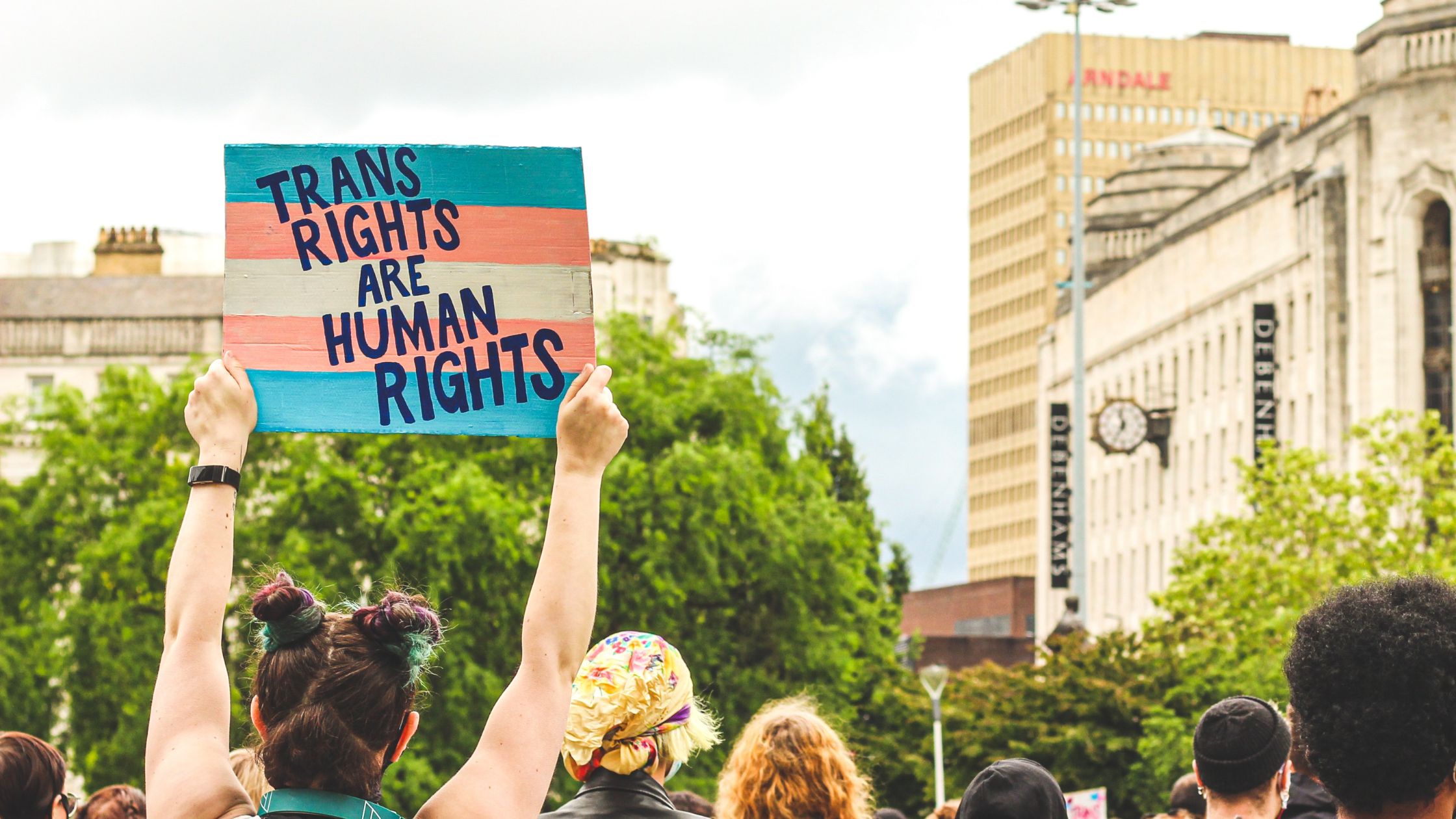Taking Action as an Ally for Trans Rights: 6 Practical Steps

The items showcased on this page may earn us a small commission (at no additional cost to you). Learn more.
Transgender individuals in the US continue to face significant challenges and political attacks when it comes to their fundamental human rights. Discriminatory laws and policies have denied them access to healthcare, banned them from sports teams, and excluded them from public spaces.
For example, some states have passed laws prohibiting transgender students from participating in school sports consistent with their gender identity. In addition, some states have recently passed or introduced legislation banning the performance of drag shows and other forms of gender expression in schools, libraries, and other public spaces.
As allies, we have the power to make a difference. In this post, we’ll explore six practical steps you can take to support transgender rights and advocate for change.
These steps are accessible and impactful for anyone who wants to make a difference in transgender rights. We’ll show you how to advocate for policies that protect transgender individuals and create safe spaces in your community. By taking these steps, you can become a better ally and help counteract restrictive laws and policies.
Support Transgender Organizations

Supporting transgender organizations is crucial for being an ally for transgender rights. These groups provide resources and support to transgender individuals, including counseling and legal assistance.
You can help by donating money or volunteering for administrative tasks, fundraising events, or community outreach. Some great organizations that support the transgender community include the National Center for Transgender Equality and the Transgender Legal Defense and Education Fund.
Raising awareness about the work these organizations do is also essential. Sharing their message on social media, participating in their events, or encouraging others to get involved can help these organizations reach a wider audience and make a more significant impact.
Educate Yourself

Educating yourself is a crucial step in supporting transgender rights. By learning about the challenges that transgender individuals face, you can better understand their experiences and advocate for their rights.
You can start by reading transgender-themed books and articles about transgender issues, attending workshops or training sessions, or watching documentaries and films. It’s also important to listen to the voices of transgender individuals and their allies and to be open to learning from their experiences.
By understanding the complexities of transgender identities and experiences, you can more effectively support transgender rights. Also, you can share your knowledge with others and help dispel harmful myths and stereotypes.
Remember, education is an ongoing process; there is always more to learn. Continuing to educate yourself and others can help create a more informed and supportive community for transgender individuals and their allies.
Advocate for Policies

By learning about the policies that impact the transgender community at the local and national level, you can take action to support policies that protect transgender rights.
You can start by contacting your elected representatives and urging them to support policies that protect transgender rights. This can include writing letters, making phone calls, or attending public hearings. Advocacy groups or organizations can provide guidance and resources for advocating for policies that support transgender individuals.
Some great advocacy groups or organizations include the Human Rights Campaign and GLAAD. These groups work to promote policies and legislation that protect the rights of transgender individuals.
Remember, advocating for policies that support transgender rights takes time and persistence. By working together and advocating for change, we can help make a difference.
Create Safe Spaces

It’s no secret that transgender individuals often face discrimination and harassment in public spaces, including restrooms, schools, and workplaces.
You can help create safe spaces by educating yourself and others about transgender issues and promoting understanding and acceptance of transgender identities. You can also create safe spaces by using inclusive language and respecting individuals’ gender identities. This can include using individuals’ preferred pronouns, respecting their chosen name, and refraining from making assumptions about their gender identity.
Supporting and participating in transgender community events and organizations can also provide opportunities to learn more about transgender experiences, meet transgender individuals, and show your support for the community.
Creating safe spaces can help ensure that transgender individuals feel valued, respected, and included in our communities.
Listen and Learn

Another way to support transgender rights as an ally is to listen and learn from transgender individuals actively. Transgender people are experts on their own experiences and can provide unique insights and perspectives on their challenges.
To listen and learn, you can engage in respectful conversations with transgender individuals and ask them about their experiences and perspectives. It’s essential to approach these conversations with an open mind and a willingness to learn.
Additionally, you can follow transgender individuals and organizations on social media, attend conferences or workshops, and watch documentaries or films centered around transgender issues. By doing so, you can gain a deeper understanding of the challenges and discrimination faced by the transgender community and find ways to take action in support of their rights.
Use Inclusive Language

Using inclusive language is extremely important. Language is crucial in creating a safe and welcoming environment for transgender individuals.
One of the most critical aspects of using inclusive language is to respect individuals’ gender identities and use the pronouns and names that they prefer. Asking for individuals’ pronouns and using them correctly can significantly impact their sense of belonging and acceptance. Additionally, using gender-neutral language and avoiding assumptions about individuals’ gender identities can create a more inclusive environment.
Avoid making assumptions about individuals’ gender identities based on appearance or physical characteristics. Refrain from asking invasive questions or using derogatory terms, and use respectful and affirming language when speaking about transgender individuals and the transgender community.
To sum it up, being an ally for transgender rights is a continuous journey that requires ongoing effort and dedication. By taking these six practical steps – supporting transgender organizations, educating ourselves, advocating for policies, creating safe spaces, listening and learning, and using inclusive language – we can make a small but collective difference in the lives of transgender individuals. Remember, even small actions can have a big impact. Let’s continue to support and promote transgender rights, and make a positive change in our communities.
